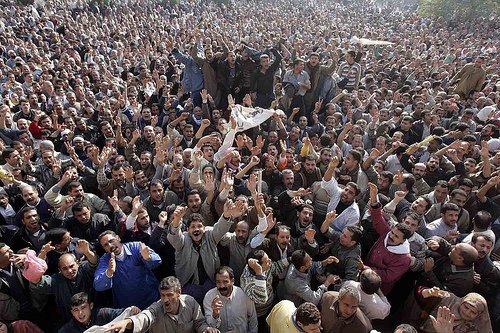This is not a moral judgment about the quality or goals of the Egyptian protests. That will be for history to decide.
The world watched in awe as Egyptians doggedly protested their government. Egyptians fought police in the streets and finally cheered as the military intervened. Mubarak fled the country. The people celebrated, and some semblance of calm was restored.
It seems, they Egyptians may have celebrated too soon.
Egypt protests against anti-protest law
In a stunning (but not, to observers of political history, unexpected) reversal of their fortunes, the ruling Egyptian “cabinet” made it illegal to protest.
- The Egyptian cabinet approved yesterday a decree-law that criminalises strikes, protests, demonstrations and sit-ins that interrupt private or state owned businesses or affect the economy in any way.
- The decree-law also assigns severe punishment to those who call for or incite action, with the maximum sentence one year in prison and fines of up to half a million pounds.
- Many labourers have expressed their shock at the decree. “We really had hopes that the new government will support us and look into our demands. We expected them to say we have all of your legal demands on our desks and there is a timeline of a month or two within which they will be achieved,” said Ali Fotouh, a driver in the public transportation sector.
- “I don’t understand what they mean by protests that affect the traffic and the business. This is not fair, why don’t you solve our demands so that we don’t go on strikes. This tone reminds me of the old days of Mubarak, threats and oppression used by the regime. This is no longer valid after January 25 Revolution.”
Meet the new boss, same as the old boss.
- “This only shows us that the new cabinet is launching a counter revolution. I am only surprised they have announced their hatred to the revolution that fast,” added Basiouni.





